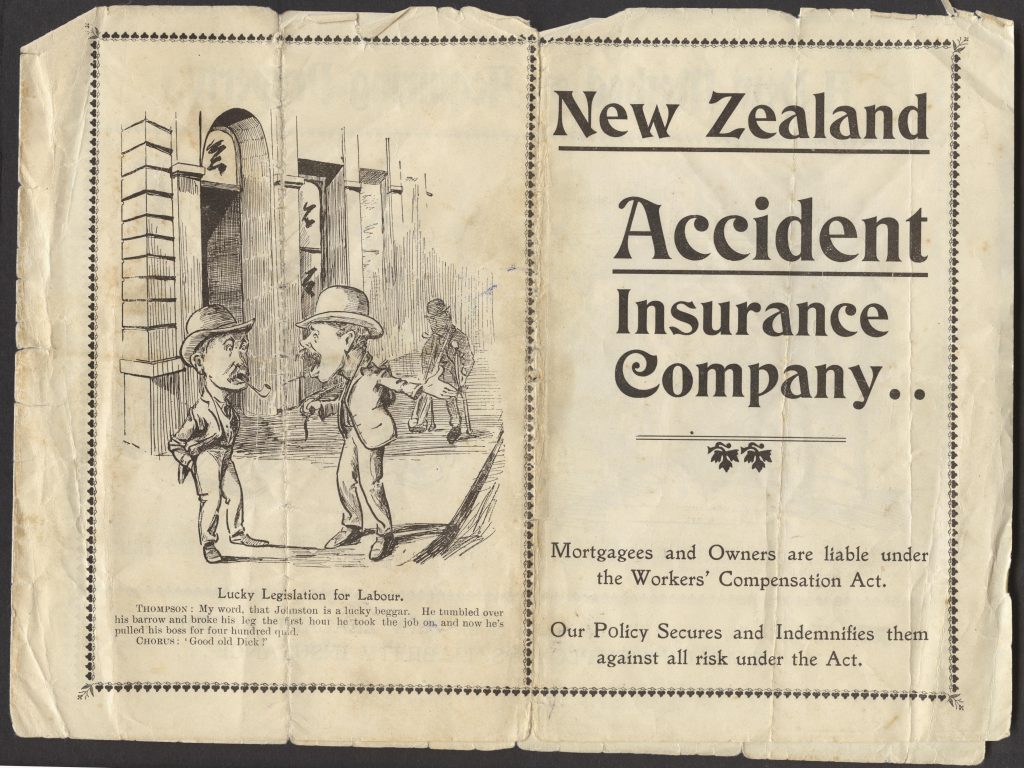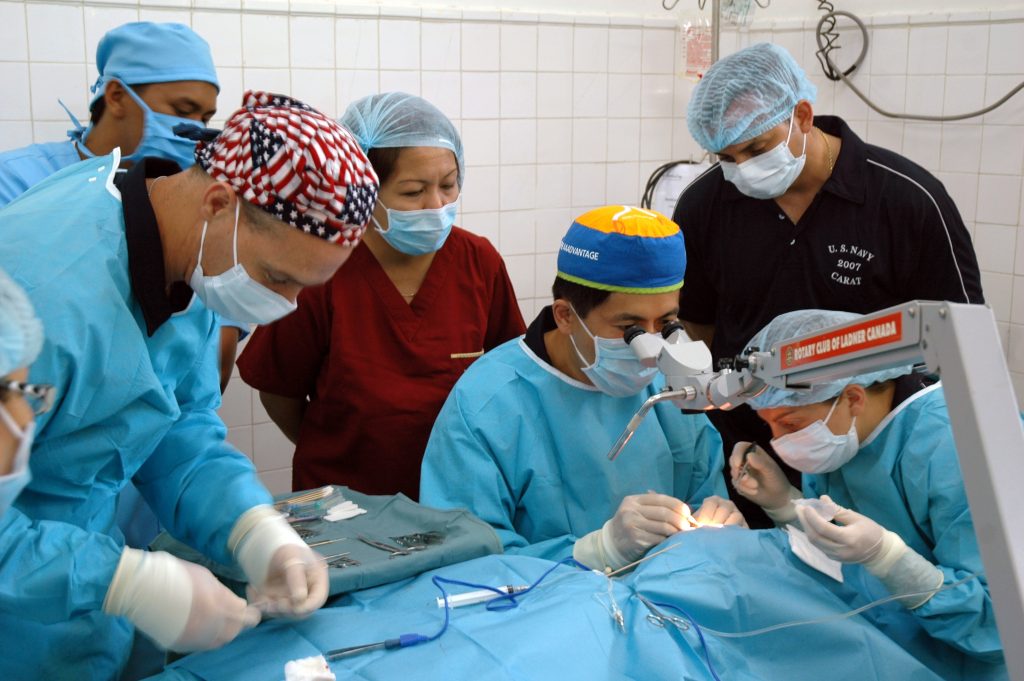 Relationships between employees and employers can sour quickly when employees commit negligence during their duties. In some cases, the innocent party can seek compensation from the employer for damages caused by the employee. But what if the party causing harm is not really an employee but an independent contractor? And what if the roles are not entirely clear? A recent injury case out of Denham Springs addressed those questions.
Relationships between employees and employers can sour quickly when employees commit negligence during their duties. In some cases, the innocent party can seek compensation from the employer for damages caused by the employee. But what if the party causing harm is not really an employee but an independent contractor? And what if the roles are not entirely clear? A recent injury case out of Denham Springs addressed those questions.
In May 2012, Irby Burleigh was descending from an attic in a home that he would possibly lease when the ladder detached from the ceiling while Mr. Burleigh was on it. He fell and sustained injuries because of this faulty ladder.
D.R. Horton, Inc. – Gulf Coast (“Horton”) was the general contractor that constructed the home. Mr. Burleigh filed a lawsuit against Horton, claiming that the ladder was not properly installed and that Horton’s negligence was the cause of the accident.
 Louisiana Personal Injury Lawyer Blog
Louisiana Personal Injury Lawyer Blog


 If you are injured on the job, you might be entitled to compensation through the workers’ compensation system. What happens if your employer denies your claims for treatment recommended by your treating physicians? Can your employer be required to pay you penalties and fees?
If you are injured on the job, you might be entitled to compensation through the workers’ compensation system. What happens if your employer denies your claims for treatment recommended by your treating physicians? Can your employer be required to pay you penalties and fees? While involved in a legal dispute, there are strict timelines that must be followed, not only for filing an initial lawsuit, but also for filing any subsequent appeals. However, arguments can arise about what timeline applies to a certain factual situation.
While involved in a legal dispute, there are strict timelines that must be followed, not only for filing an initial lawsuit, but also for filing any subsequent appeals. However, arguments can arise about what timeline applies to a certain factual situation.  Sometimes, commonplace items such as stairs can lead to serious injuries. This case involves the unfortunate situation of a woman who fell down stairs and was injured. Under what circumstances can a building owner be held responsible for injuries from falling down the stairs?
Sometimes, commonplace items such as stairs can lead to serious injuries. This case involves the unfortunate situation of a woman who fell down stairs and was injured. Under what circumstances can a building owner be held responsible for injuries from falling down the stairs?  While many people enjoy oysters, few people are aware how oyster leases work. This case involves a couple who held oyster leases that were harmed when a company decided to renter a nearby oil well. Can that company be held liable for the damages to the holders of the adjacent oyster leases?
While many people enjoy oysters, few people are aware how oyster leases work. This case involves a couple who held oyster leases that were harmed when a company decided to renter a nearby oil well. Can that company be held liable for the damages to the holders of the adjacent oyster leases?  If you retain a lawyer, you expect they will fairly represent you. What happens if after you hired a lawyer, you learn that lawyer had previously represented one of the parties you are suing, multiple times? Just like in other lawsuits, it is essential that you file any lawsuit within the required time period for bringing a claim. If you wait too long, then a court may be unable to hear your claim.
If you retain a lawyer, you expect they will fairly represent you. What happens if after you hired a lawyer, you learn that lawyer had previously represented one of the parties you are suing, multiple times? Just like in other lawsuits, it is essential that you file any lawsuit within the required time period for bringing a claim. If you wait too long, then a court may be unable to hear your claim. Undergoing a surgery is always a nerve-wracking experience. You want to be able to trust that your surgeon conducted and reviewed the appropriate pre-operative tests. Can a surgeon be held liable if he or she fails to review the results of the pre-operative tests before performing the surgery?
Undergoing a surgery is always a nerve-wracking experience. You want to be able to trust that your surgeon conducted and reviewed the appropriate pre-operative tests. Can a surgeon be held liable if he or she fails to review the results of the pre-operative tests before performing the surgery?  Although money can never replace a loved one, if you find yourself in the tragic aftermath of a loved one’s death, you might be looking to recover damages from the responsible parties. However, the process of recovering damages can be difficult and emotionally charged. This is especially true if an insurance policy is involved and the insurer argues it is not required to provide coverage.
Although money can never replace a loved one, if you find yourself in the tragic aftermath of a loved one’s death, you might be looking to recover damages from the responsible parties. However, the process of recovering damages can be difficult and emotionally charged. This is especially true if an insurance policy is involved and the insurer argues it is not required to provide coverage.  When receiving medical care, the choice of medical professional can influence your treatment. If you have been injured on the job, you might not be sure if you can pick your own doctor or if you have to use a doctor your employer selects. Under the Louisiana Workers’ Compensation Act, an injured worker is entitled to select a physician in any specialty for an initial visit. The employer is not required to approve the employee’s choice of physician. What happens if the employer claims the employee was not injured on the job?
When receiving medical care, the choice of medical professional can influence your treatment. If you have been injured on the job, you might not be sure if you can pick your own doctor or if you have to use a doctor your employer selects. Under the Louisiana Workers’ Compensation Act, an injured worker is entitled to select a physician in any specialty for an initial visit. The employer is not required to approve the employee’s choice of physician. What happens if the employer claims the employee was not injured on the job?  If you prevail in a lawsuit, you might be entitled to various damages. One type of damages available in Louisiana is
If you prevail in a lawsuit, you might be entitled to various damages. One type of damages available in Louisiana is